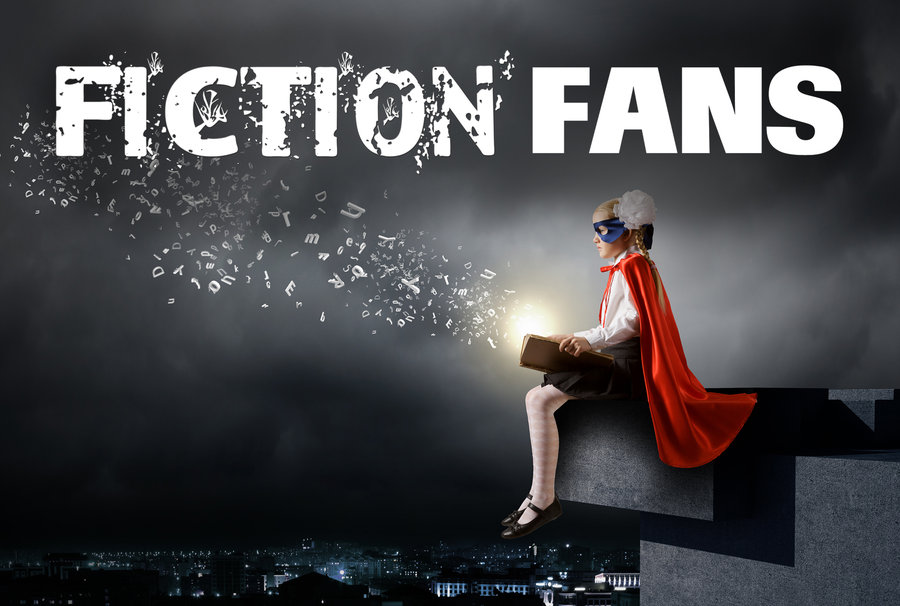Jane the Killer greeted me near the entrance to the backroom of The Dopeness restaurant on Second Street wrapped in a red shawl, her eyes black and sunken, her lips blood red against a ghostly white face. She stood next to the featureless Slender Man who collected cash with his long, skinny fingers. Typically relegated to the wiki pages of online horror micro-fiction, both characters were out for the Jersey City Writers (JCW) genre night in October, which featured Creepypasta.
Creepypasta originated from the term “copypasta,” which refers to Internet material that has been copied and pasted many times over—in this case scary stories. It was the fifth theme in a series of genre nights organized by JCW that included science fiction, paranormal, western, and erotica.
“I feel like genre fiction doesn’t get the credit it deserves,” says 26-year-old Meg Merriet, the woman behind the Jane the Killer mask, who coordinates genre night. “People always think it is not as elevated as literary fiction. I disagree. Genre fiction can be fun and you can learn something profound from it.”
Exploring Genres
I had never heard of creepypasta until the open call for submissions through JCW. My family is in the pizza-and-pasta business, and it brought up images of a penne gone bad. A number of writers at the event agreed that part of the fun of genre night was exploring and learning more about a particular writing niche.
“For a lot of writers they are testing it out and seeing if it is their genre,” Merriet says.
Shafiq Quoraishee, who had his piece “Hell Awaits” read by writer Angelica Schreyer, says genre night allows him “to get out of my comfort zone. … I get to flex my creative muscle … to write something new and spontaneous.”
JCW gets on average 20 submissions per genre night. Active group members judge and select stories for the public reading. Authors can choose to read their own work or have their pieces read by an actor or someone else. Some events have featured guest speakers such as science fiction writer Jeff Somers and award-winning novelist Leanna Renee Hieber.
“We have been trying to find bigger and bigger venues each time,” Merriet says. “At erotica night they were turning away throngs of people at the door because they couldn’t fit them.”
Setting a Literary Vibe
More than 40 audience members gathered around small tables over nachos and burritos. Macabre music played in the background; art featuring skulls, astronauts, and robots lined the walls; and guests helped themselves to free wine in the back.
After a five-minute writing prompt to create a two-sentence-or-less horror story, the evening kicked off with the first selections.
“Oh my god! That was so nerve-wracking,” Kevin Singer, a local writer, says after he steps off the stage. “I’m not a public speaker.” Singer read his story “Pan” about an evil Tinker Bell. A medical writer by profession, he joined JCW eight months ago.
Other local writers included Rachel Poy, who read her story “Dirty Great Monster,” and Allison Goldstein, who was inspired by the rabbit in Donnie Darko to write “Rolph” about a big puppy that walks around like a human.
Between readings, JCW members and their guests mingled and socialized.
Showcasing Local Writers
When I first joined JCW years ago, it was no more than a small social gathering with just a few writers. It has grown to include 75 active members and more than 500 people in its network, according to chairs James DeAngelis and Rachel Poy.
“We went from meeting once per week to 16 meetings per month,” DeAngelis says. “The group has become more active and more focused on writing.”
The group hosts writing workshops, writing “prompts” to jumpstart ideas, nonfiction, and marathon nights, as well as a special subgroup for novelists called “The Full Story.” JCW has also held workshops related to self publishing, yoga and writing, and submitting stories for publication in literary journals.
“There are few places in Jersey City where you can meet local authors, talk about their genre, and then hear amazing new creative work,” DeAngelis says. “The group attracts all types of people including novelists, flash-fiction types, journalists, filmmakers, and poets.”
He hopes that people who come out to events like genre night will one day read a piece in The New Yorker or a literary magazine and remember that they heard it first at one of the JCW events.
Becoming a Nonprofit
When asked what’s next for JCW, Poy says, “Bigger, louder, faster, more. We look to our members to tell us where to go next.”
The group has just begun exploring nonprofit status.
“A nonprofit will give us the foundation to build upon and grow our group,” DeAngelis says.
While the group looks to establish itself in a more formal structure, events like genre night will continue.
The schedule has been mapped out and includes a fantasy night devoted to female protagonists, girls and women who would make terrible princesses, romance around Valentine’s Day, and steampunk.
“I am actually surprised by how many people will come out and listen to short stories being read,” Merriet says. “Because I thought the written word was dead, but it is coming back.”—JCM
